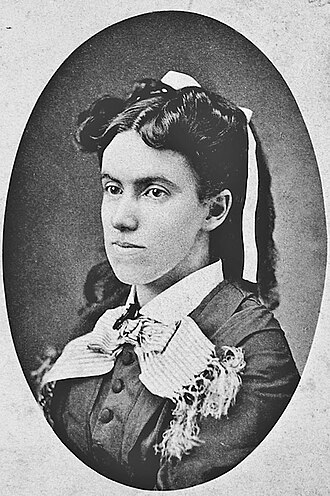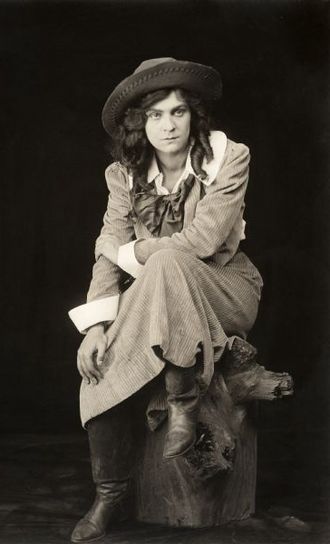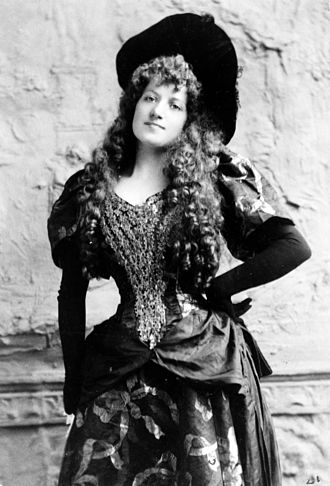Discover Your Roots
SIGN UPDiscover Your Roots
SIGN UPLottie is a lovely female given name of English origin, meaning "Free." This name is deeply rooted in English culture and is associated with the concept of liberty and independence. Famous individuals bearing the name Lottie include Lottie Deno, an American gambler, Lottie Lyell, an Australian actress and filmmaker, and Lottie Pickford, a Canadian-born actress. Additionally, it has been used to name various places and objects, such as an unincorporated community in Louisiana, a Canadian hamlet, and a main-belt asteroid. The name Lottie is also linked to children's fashion dolls and a file format for vectorial graphics. Its significance as a symbol of freedom and its widespread usage in various contexts make Lottie a name with a rich and diverse heritage.

Lottie Moon, born on December 12, 1840, was a pioneering American Southern Baptist missionary who dedicated nearly 40 years of her life to living and working in China. Raised in a Baptist household on a tobacco plantation in Virginia, Moon received a comprehensive education and became proficient in several languages, including Chinese. Her spiritual awakening during her early teens led her to pursue a career in teaching and missionary work.After her older sister became the first single woman Baptist missionary in 1872, Moon felt called to follow in her footsteps. In 1873, she was officially appointed as a missionary to China by the Foreign Mission Board. Initially teaching in a boys' school, Moon later focused on direct evangelism, recognizing the unique ability of women to reach Chinese women.Moon's missionary work expanded significantly in the late 19th century, as she gave up teaching to evangelize full-time in various areas of China. A prolific writer, she advocated for women missionaries' freedom to minister and have an equal voice in mission proceedings. Moon's letters and articles passionately described the life of a missionary and emphasized the urgent need for more missionaries to support the work in China.Throughout her life, Lottie Moon laid a foundation for robust support for missions among Southern Baptists, particularly through its Woman's Missionary Union. Her unwavering dedication and advocacy continue to inspire and shape missionary endeavors to this day.

Lottie Briscoe (April 19, 1883 – March 21, 1950) was an influential American stage and silent screen actress. Known for her early start in theater and successful transition to cinema, Briscoe appeared in over 94 motion pictures. She is best remembered for her collaboration with co-star Arthur V. Johnson at Lubin Studios. Born in St. Louis, Missouri, to Mr. and Mrs. T. D. Briscoe, she hailed from a family with strong ties to the theater. Her sister, Olive Helen Briscoe, also had a successful career in vaudeville. Briscoe's career spanned both stage and film, with notable roles in productions such as "The Devil's Disciple" and "The Belovéd Adventurer." Following her peak years in film, Briscoe transitioned to vaudeville and remained active in the entertainment industry. She passed away in New York in 1950, leaving behind a legacy of remarkable contributions to the world of performing arts.For more information on Lottie Briscoe, you can visit her IMDb page or explore the Harry Mountford and Lottie Briscoe papers, 1871-1950 (bulk 1906-1935), held by the Billy Rose Theatre Division, New York Public Library for the Performing Arts.

Lottie Collins (16 August 1865 – 1 May 1910) was a renowned English singer and dancer, best known for popularizing the song "Ta-ra-ra Boom-de-ay!" in England. Born as Charlotte Louisa Collins in the East End of London, she began her career in music hall at a young age, performing with her sisters as The Three Sisters Collins. Collins later became a solo act in music hall and ventured into theatre, gaining recognition for her performances in the United States and England. Her rendition of "Ta-ra-ra Boom-de-ay!" became her signature piece, accompanied by an energetic skirt dance that captivated audiences. She also achieved success with other songs and dance sketches, solidifying her status as an icon of the "Naughty Nineties." Despite facing criticism for her risqué style, Collins defended herself and continued to leave a lasting impact on the entertainment industry. She was a mother of three daughters, one of whom, José Collins, became a musical comedy star. Tragically, Collins passed away on 1 May 1910 due to heart disease. Her legacy lives on as a pioneering figure in the world of music hall and vaudeville.

Lottie H. Shackelford, born on April 30, 1941, is a prominent American politician who made history as the first woman appointed as the mayor of Little Rock, Arkansas in 1987. Notably, President Bill Clinton selected her as the first African-American woman to serve on the Board of Directors of the Overseas Private Investment Corporation (OPIC) in 1993. Shackelford's political journey began with her election to the Board of Directors for the City of Little Rock in 1978, followed by successful re-elections before ascending to the position of the city's mayor. She has been a dedicated member of the Democratic National Committee (DNC), serving as the longest-standing vice chair for 20 years and contributing significantly to the party's operations at both state and national levels. Her remarkable career also encompasses roles such as advising presidential candidates, representing a Presidential administration abroad, and actively engaging in voter registration and participation initiatives as the DNC Vice Chair. Shackelford's contributions have been widely recognized, earning her prestigious awards and honors, including induction into the Arkansas Women's Hall of Fame in 2016. Throughout her career, she has showcased leadership, advocacy, and commitment, leaving a lasting impact on the political landscape.

Lottie Kimbrough, also known as Lottie Beaman, Lena Kimbrough, and several other names, was an American country blues singer born in either Jonesboro, Arkansas, or West Bottoms, Kansas City, Missouri, around 1893 or 1900. Known for her powerful vocal delivery, she was affectionately nicknamed "The Kansas City Butterball". Kimbrough's recording career, which spanned from 1924 to 1929, showcased her unique talent within the 1920s blues tradition.Her music journey began in the early 1920s, performing in nightclubs and speakeasies in Kansas City. Managed by Winston Holmes, a local musician and promoter, she embarked on her first recording session in 1924 for Paramount Records, where she recorded alongside Ma Rainey. Throughout her career, she used various pseudonyms and collaborated with renowned musicians, leaving a lasting impact on the blues genre.Despite the limited information available about her life beyond her recording career, Kimbrough's musical legacy lives on through her hauntingly beautiful tracks such as "Rolling Log Blues" and "Goin' Away Blues". Her influence is evident in the numerous artists who have covered her songs, including Son House, Rory Block, and Buffy Sainte-Marie.Selected compilation albums such as "Lottie Kimbrough & Winston Holmes (1928–1929)" and "Kansas City Blues 1924–1929" continue to preserve her timeless
All images displayed on this page are sourced from Wikipedia or Wikimedia Commons.We use these images under their respective Creative Commons or public domain licenses. Wherever applicable, author attributions and license information are provided. If you believe an image is used incorrectly or outside its license terms, please contact us so that we can review and correct the issue.